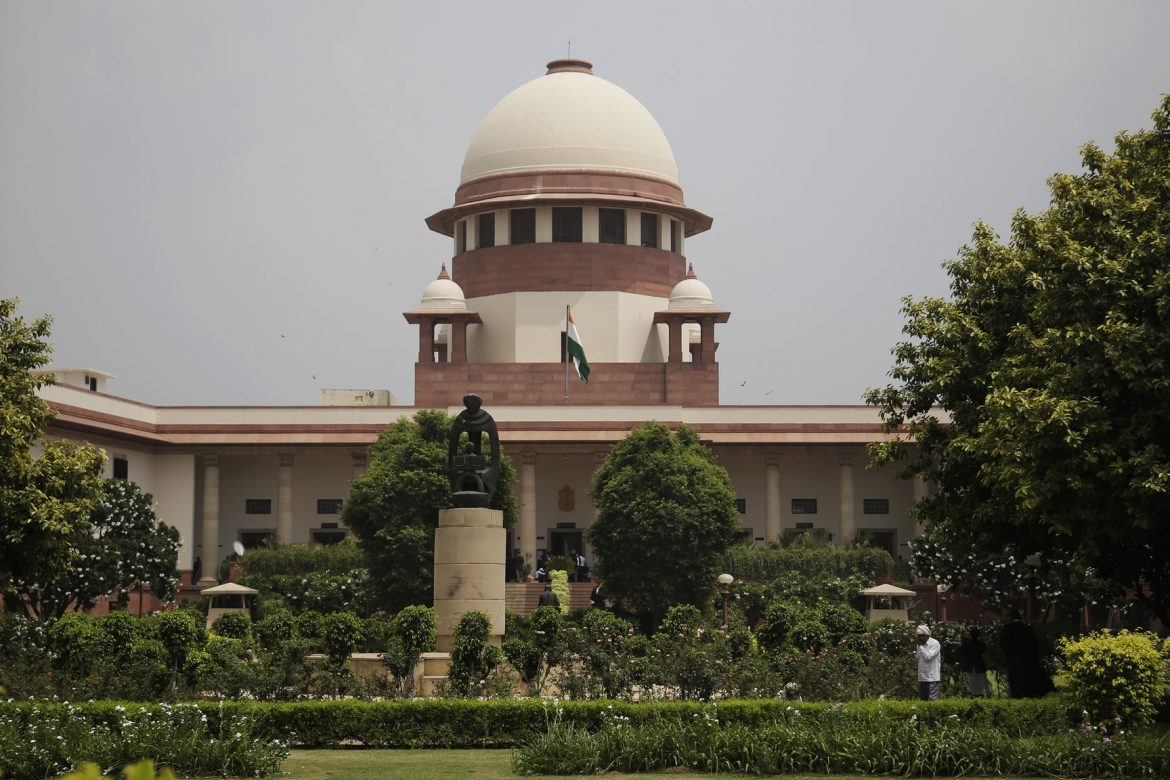This material belongs to: The Guardian.
Critics accuse chief justice Dipak Misra of insisting only judges of his choice can hear case of ex-judge accused of conspiring to bribe colleagues.
Senior lawyers in India say the country’s supreme court is in crisis over the case of a former high court judge accused of offering to influence decisions for cash.
Events in the case in recent days have led to extraordinary accusations of misconduct against India’s most senior judge and fierce criticism of the supreme court, considered one of the country’s most upstanding institutions.
Critics accuse the Indian chief justice, Dipak Misra, of intervening to ensure only judges of his choice can hear a sensitive case relating to corruption involving a retired high court judge.
The retired judge, IM Quddusi, is accused of conspiring to bribe supreme court justices in a case over which Misra himself presided. It is not known which justices, if any, were allegedly offered bribes.
Quddusi was arrested in September along with five others accused of involvement in the alleged judicial bribery ring. Investigators have not alleged Misra or any other supreme court justice behaved corruptly.
Neither Quddusi nor Misra have commented publicly on the allegations.
Questions over how to handle the case have sparked an uproar in the ordinarily sombre institution. The controversy is centered on a petition filed in the supreme court by a legal reform group, asking for the Quddusi case to be handled by an independent investigative team.
Among the issues raised by the petitioners was a possible likelihood of bias if Misra was to consider a case with some connection, however tenuous, to him or other judges.
The petition was first lodged in the court last Wednesday and listed for hearing at the end of the week before the court’s second most senior justice, Jasti Chelameswar.
Then, reportedly at Misra’s behest, this decision was overturned, and the case was allocated to a different bench.
The next day, another lawyer lodged the same petition with justice Chelameswar who, noting its “disturbing” allegations, ordered a hearing for Monday. He gave the order, despite a note being delivered from Misra during the proceedings, asking him not to make any decision in the case. Chelameswar attached Misra’s note as an appendix to the case record, which is available to the public.
In a hearing called late on Friday, the chief justice again overrode the decision by Chelameswar, ruling that the case would be heard by a bench of his choice early this week. Misra told the court that as chief justice he alone had the power to decide the schedule and roster of the supreme court’s hearings.
The Friday hearing was a chaotic affair, with one lawyer arguing the petition, Prashant Bhushan, escorted from the court while flanked by security after verbally remonstrating with Misra.
Bhushan later tweeted that the chief justice was guilty of “very serious misconduct”. “He has violated basic principle of natural justice, that you can’t be judge in your own cause,” he said.
Shylashri Shankar, a fellow with the Delhi-based Centre for Police Research, who has authored a book about the supreme court, said judges on the 29-person bench had always had personal disagreements. But they had never before spilled over into the administration of the court. “That’s something I haven’t come across,” she said.
The supreme court on Tuesday dismissed the petition to refer the Quddusi matter to an independent investigative team, describing suggestions of possible bias as “derogatory and contemptuous”.
Alok Kumar, a senior resident fellow at the Vidhi Centre for Legal Policy, said the episode was highly unusual and a “blow to the credibility of the supreme court”.
Kumar, who also sits on the executive committee of the judicial reform group that lodged the petition, said the chief justice had “completely mishandled” the case.
“It is unprecedented for a chief justice to assert this kind of power when his own conduct is in question,” he said.
PV Dinesh, a supreme court advocate for the past 20 years, said the controversy was concerning. “It has shaken public confidence in the Indian judicial system, in which the Indian public has put enormous faith, and which many Indians consider their last resort,” he said.
 info@anticorr.media
info@anticorr.media

